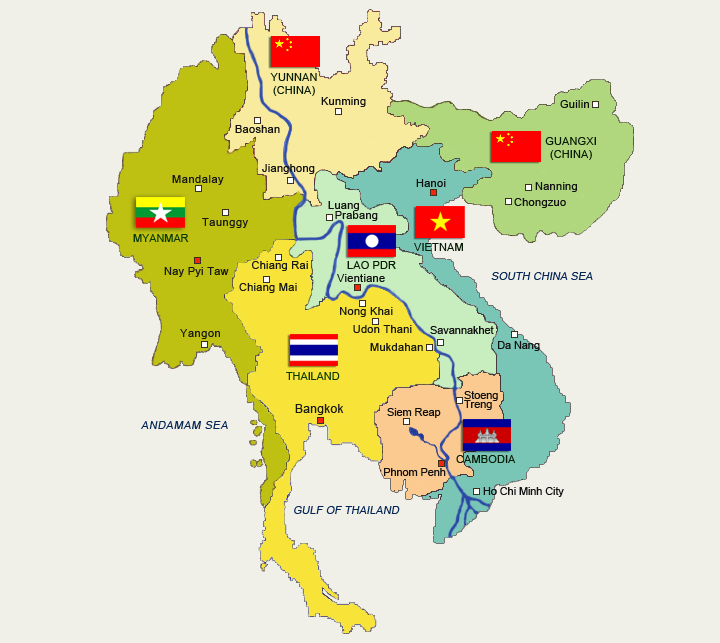 Mekong Institute (MI) is an intergovernmental organization (IGO) founded by the six member countries of the Greater Mekong Sub-region (GMS), namely Cambodia, P.R. China (Yunnan Province and Guangxi Zhuang Autonomous Region), Lao PDR, Myanmar, Thailand and Vietnam. MI implements and facilitates integrated human resource development (HRD), capacity building programs and development projects related to regional cooperation and integration. Its programs and activities currently focus on three main activities: Agricultural Development and Commercialization, Trade and Investment Facilitation, and Innovation and Technological Connectivity.
Mekong Institute (MI) is an intergovernmental organization (IGO) founded by the six member countries of the Greater Mekong Sub-region (GMS), namely Cambodia, P.R. China (Yunnan Province and Guangxi Zhuang Autonomous Region), Lao PDR, Myanmar, Thailand and Vietnam. MI implements and facilitates integrated human resource development (HRD), capacity building programs and development projects related to regional cooperation and integration. Its programs and activities currently focus on three main activities: Agricultural Development and Commercialization, Trade and Investment Facilitation, and Innovation and Technological Connectivity.
Managed by GMS national and international staff and supported by international academics, subject-matter experts and consultants, MI works with and through various local government authorities, development partners and local organizations to deliver, implement standardized and customized learning programs, workshops, seminars, policy consultation, and research and development projects.
Goals and strategies of MI support the GMS Cooperation Program and the ASEAN Economic Community (AEC), emphasizing enhanced physical connectivity in the GMS economic corridors and the realization of the GMS/AEC target of a single market and production base, equitable growth, and sustainable resource management.
VISION
Capable and committed human resources working together for a more integrated, prosperous and harmonious GMS.
MISSION
To contribute through human resource development and capacity building to the acceleration of sustainable economic and social development and poverty alleviation in the Greater Mekong Sub-region and promote regional cooperation and integration.
Map of six member countries
